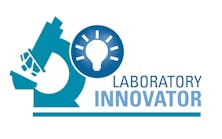John Ledek guides BD's efforts to offer labs innovative solutions for preanalytical systems
John Ledek,
President, BD Diagnostics – Preanalytical Systems
Professional
Joined BD Diagnostics – Preanalytical Systems January 2012;
Served as BD Vice President and General Manager of Infusion Therapy in Sandy, Utah, 2007-2012.
Education
BS in Engineering Management, U.S. Air Force Academy;
MBA, Harvard Business School.
Personal
“Outside of work, I spend my time with my wife and daughters. I am also an avid skier and golfer, and I lead a volunteer program at my local church.”
Challenges in preanalytical systems (PAS) that laboratories now face. Clinical laboratories, like other parts of our healthcare system, are striving to provide high-quality services in the face of ever-shrinking resources, an uncertain reimbursement climate, and increasing regulatory demands. To demonstrate value to their institutions and secure the necessary investment for their departments, lab directors and managers are seeking to optimize processes, enhance efficiency, decrease risk, and reduce overall costs wherever possible. More and more, they are viewing the preanalytical phase of laboratory testing as a critical area for improvement that can drive not only better patient care and satisfaction, but also substantial productivity gains and cost savings. Fortunately for BD Diagnostics—Preanalytical Systems, this is right in our sweet spot. For more than 60 years, BD has served as the pioneer and leader in the science of specimen collection. Over that time, we have developed deep expertise that complements our comprehensive product portfolio. Our customers draw upon both of these assets to derive maximum value from their preanalytical processes. Our expert team of Technical Services and Medical Affairs representatives, Care Consultants, Lean-Sigma Consultants, and Sales Consultants help customers understand how their institutions are performing on key preanalytical metrics, such as hemolysis, urine contamination, and needlestick injuries. Then, they can help implement improvements.
Sample collection solutions that BD Diagnostics provides. America's leading hospitals rely upon BD Vacutainer® products to help improve outcomes and patient satisfaction, protect caregivers from needlestick injuries, drive efficiency, and reduce costs. Every second, 70 patients, around the world have diagnostic samples drawn with our products.
Our flagship product is the BD Vacutainer Push Button Blood Collection Set. This second-generation safety wingset offers phlebotomists and nurses split-second, in-vein safety activation. The protection this product provides is well documented, with one peer-reviewed study reporting an 88 percent reduction in needlestick injuries when compared to first-generation safety wingsets. Importantly, no injuries were reported in the last 21 months of the study. With the significant costs associated with just one needlestick injury, forward-looking institutions realize the importance of meeting their obligations to protect nurses and phlebotomists during blood collection procedures.
Two other products getting a lot of attention in labs across the country are BD Vacutainer Rapid Serum Tubes (RST) and BD Vacutainer urine collection products. One reason for this attention is healthcare reform. Hospitals, which now have to report myriad quality metrics, are looking for ways to increase patient throughput, improve infection monitoring, and eliminate unnecessary retesting that adds costs and decreases patient satisfaction. The BD Vacutainer RST product can save clinicians valuable time by reducing the wait time for lab results by up to 32 minutes, with a five-minute clot time versus the 30 to 60 minutes required by serum tubes. This quicker test turnaround time can help facilities significantly improve patient throughput, especially in places like emergency rooms. BD Vacutainer urine collection products can provide hospitals the means to eliminate sources of contamination and help improve their ability to more efficiently manage catheter-associated urinary tract infections (CAUTIs)—a key quality metric that can affect reimbursement.
Mistakes labs can make in today's tight budget environment. It is easy to see how lab directors or purchasers could get seduced by the promise of instant savings by a “simple” change in sample collection products. The quick math looks good, and specimen collection products are non-differentiated commodities, right? Wrong. Most lab directors know that specimen collection is an area that is too important to put at risk because one problem can cause issues that ripple throughout an institution from the lab to almost every department—adding cost, creating extra work, endangering caregivers, and affecting patient test results. When these things happen, what once looked like an easy product switch quickly becomes a big headache. During deliberations, customers need to ask a potential new supplier if they will have the resources to help resolve any problems.
How BD Diagnostics-PAS is positioned to meet future demands. We strive continually to stay on top of emerging trends and customer needs. Our best resource is the vast network of relationships that we have built over the decades with customers, key opinion leaders, and leading diagnostic instrument companies. We often work side-by-side with them to address unmet needs and enhance specimen quality, improve the reliability of test results, speed turnaround times, and make the sample collection experience better for patients and healthcare workers. As we gain these insights, we make the necessary investments to ensure that our products and services remain the most innovative and relevant to our customers.
The legal/regulatory context: nationally and internationally. Legislation and regulations in the United States, Europe, and Brazil have raised awareness of the dangers and costs associated with healthcare worker exposure to bloodborne pathogens. These mandates have also helped spur exciting innovation in safety-engineered devices that provide caregivers significant protection. However, simply passing laws and developing new technologies do not ensure that the technologies will be available to the people who need them or that they will be used properly. Many things can stand in the way, including budget constraints, cultural resistance, inadequate training, and apathy. When an innovative company like BD is trying to bring some of these products to developing countries, the obstacles can be even more daunting. To succeed, companies need to take a holistic approach to drive change and adoption that involves key opinion leaders, coalitions, grassroots activity, and issue awareness campaigns. That is what has made BD successful, and that is what we will continue to do in BD Diagnostics – Preanalytical Systems to improve specimen collection practices worldwide.




